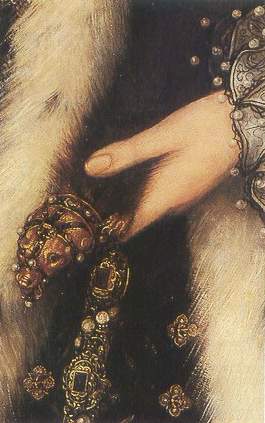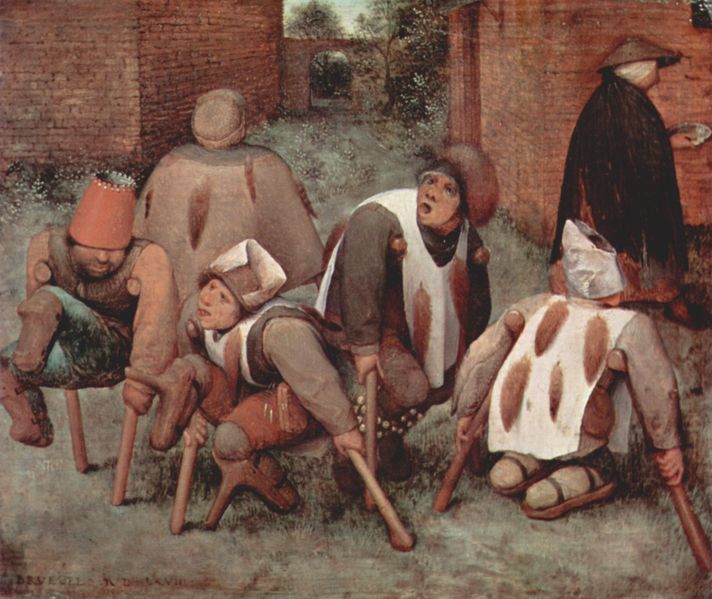

Jeweled "Flea-fur",
The Cripples
Accessories Myths
Myth: Peasant woman wear a fur tail on their bums because it's sexy!
No images found of singular fur tails being worn by peasantry. Noble ladies, as seen on the left, carried a fur stole or as the Italians called them, zibellini, usually of sable or marten, and lined in silk. The ends were sometimes tipped with a gold or jeweled mount. They were called in the 19th century as "flea-furs", a misnomer that has lasted even with today's books of research.
Thankfully, there is a great work of updated research on zibellinis offered in the article Fleas, Fur, and Fashion: Zibellini as Luxury Accessories of the Renaissance by Tawny Sherrill. This article is found in the book Medieval Clothing and Textiles 2, Edited by Robin Netherton and Gale R. Owen-Crocker. I suggest checking out this article for more info on zibellinis.
The image on the right is of crippled men wearing a number of fur tails on them. Not sure what it means, but a detailed analysis can be found online: Pieter Bruegel: The Cripples, by S. Lee Hager.
It may be that the use of fox tails worn upon one's arse is from the middle ages. I got the following from a Tribe list; renfairehistorysnobs.
{Scott from Washington quotes} "...But is seems that foxtails were also a genuine fashion accessory in the 13th century. In 'Der Jüngling' the Austrian poet Konrad Von Haslan complains of the habit of some young ladies hanging fox tails from their hats, while in Edward II's early 14th century England, the chronicler John of Reading wrote that '[Women's] bizarre clothing is so tight that they wear the tails of foxes hanging under their skirts at the back to hide their arses.' "
~ from the book The Secret Middle Ages - Discovering the REAL Medieval World, by Malcolm Jones. Publisher: Sutton Publishing (March 25, 2003) ISBN-10: 0750926856; ISBN-13: 978-0750926850. Pages 55-57
If this is an accurate historical use, than the wearing of fox tails on the back end of women is from an earlier time period, and should NOT be seen outside of the garment. Please click the link above to read the full argument that Scott gives.
Frances Sidney, Countess of Sussex, by unknown
artist, 1570 - 75.
The Cripples, by Pieter Bruegel, 1568.
Updated: Tuesday, February 16, 2010